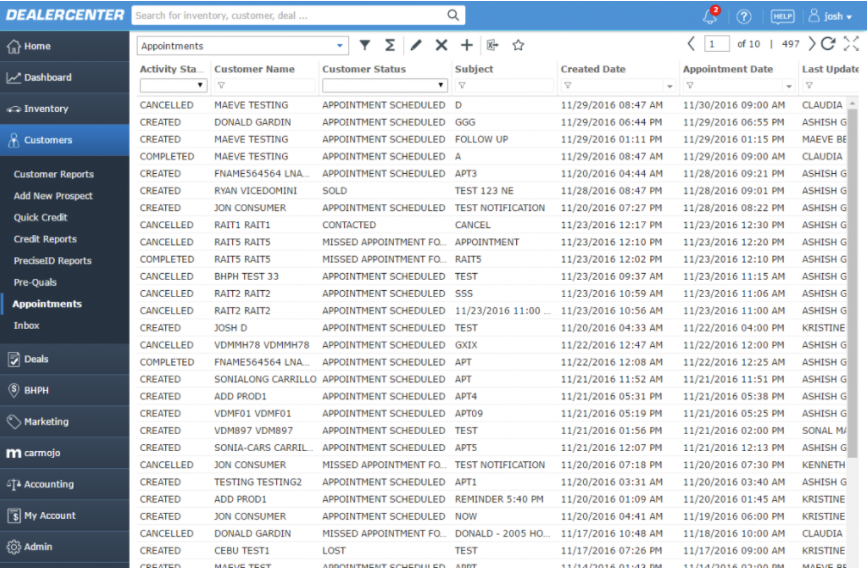
DealerCenter CRM Appointment Schedule Example
A CRM is used to record each interaction with your customer to enable you to follow the process, but also prompts you to take action during certain parts of the lifecycle.
For instance, what happens after step 1 in the process after a customer expresses interest but you do not achieve step 2 fast enough by scheduling visit? The likely answer is that the customer will reach out to other car dealerships while they await your response.
The same goes for step 3 in which, if they do not buy the car on the spot after test driving, you probably want to contact them frequently to try to close the deal and prevent them from shopping from other competitors. In these situations, a CRM can alert you that this customer is in this stage of the lifecycle and even automatically contact them to come back in.
Going back to our situation of managing hundreds of customers, a CRM can not only help manage these sorts of scenarios, but also help you categorize your customers based on which step of the sales lifecycle they are currently in. By having a CRM helping you visualize your sales lifecycle, you can identify trends. For example, if 70 out of the 100 of the clients are in step 3 of the car buying process, I can anticipate a higher volume of sales and maybe adjust my strategy to focus on closing these customers.
In contrast, this may also highlight inefficiencies in the sales process so you can refine and improve. Ultimately, the versatility of the data is endless, and the more you put in, the more you can extract and learn. A Customer Relation Management (CRM) tool is more than a history log to track interactions. It allows you to dive deep into your business to evaluate inefficiencies and manage your sales pipeline. It streamlines your process through your customer lifecycle to tailor to what works best for your business. With this history, it allows businesses to make informed decisions related to the overall business strategy. It holds the business accountable to focusing attention on their customers, and to never miss an appointment written on a notepad buried under your desk full of papers.
Your customers are your revenue, and it’s much cheaper to convert more customers into sales than it is to find more customers to sell to.
Want to learn more about DealerCenter CRM? Give us a call today at 888-669-2669
* This blog post was originally published on 11/30/2016 on dealercenter.com









